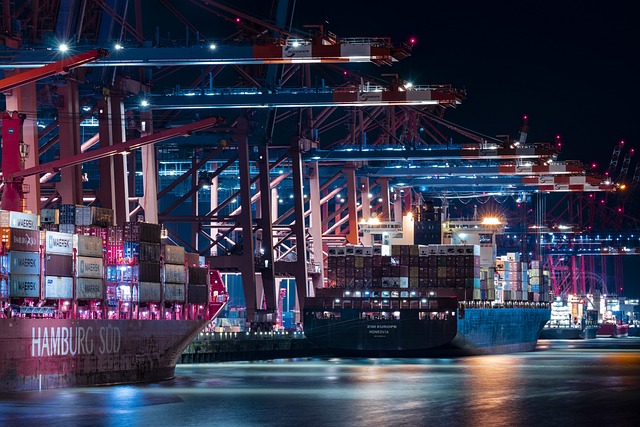In today’s fast-paced world, efficiency is key to success in logistics operations. The integration of artificial intelligence (AI) tools has revolutionized the logistics industry, enabling businesses to streamline processes, reduce costs, and enhance customer satisfaction. In this post, we will explore various free AI tools for logistics and their potential to maximize efficiency.
AI-Powered Route Optimization
Route optimization plays a crucial role in logistics, minimizing fuel consumption, reducing transportation costs, and improving delivery times. AI-powered route optimization tools utilize algorithms to analyze various factors such as traffic patterns, weather conditions, and delivery schedules to recommend the most efficient routes. These tools can significantly enhance fleet productivity and customer satisfaction by ensuring timely deliveries.
Predictive Maintenance
Maintaining a fleet of vehicles and equipment is essential for smooth logistics operations. Predictive maintenance AI tools leverage machine learning algorithms to analyze data from sensors and historical maintenance records to predict potential equipment failures before they occur. By identifying maintenance needs in advance, these tools help prevent costly breakdowns, minimize downtime, and optimize maintenance schedules, ultimately improving operational efficiency.
Demand Forecasting
Accurate demand forecasting is crucial for inventory management and resource allocation in logistics. AI-powered demand forecasting tools analyze historical sales data, market trends, and external factors to predict future demand with greater accuracy. By providing insights into customer demand patterns, these tools enable logistics companies to optimize inventory levels, reduce stockouts, and improve order fulfillment rates, thereby maximizing efficiency across the supply chain.
Warehouse Automation
Warehouse operations are a critical component of logistics, and automation technologies powered by AI offer significant opportunities for efficiency improvement. AI-driven warehouse management systems (WMS) optimize inventory storage, picking, and packing processes by leveraging machine learning algorithms to predict demand, allocate resources, and optimize workflows. These tools enhance productivity, reduce labor costs, and minimize errors, leading to faster order processing and improved customer satisfaction.
Real-Time Shipment Tracking
Visibility into the status and location of shipments is essential for efficient logistics management. AI-powered shipment tracking solutions utilize advanced tracking technologies such as GPS, RFID, and IoT sensors to provide real-time visibility into the movement of goods throughout the supply chain. By leveraging AI algorithms to analyze tracking data and predict potential delays or disruptions, these tools enable logistics companies to proactively manage exceptions, optimize delivery routes, and enhance customer communication, ultimately improving overall efficiency.
10 Best Free AI Tools for Logistics
Here are 10 of the best free AI tools that can be utilized in logistics to improve efficiency, reduce costs, and optimize operations:
1. Google Colab
- Features: Offers a cloud-based platform for machine learning and data analysis.
- Use in Logistics: Can be used for predictive analytics, demand forecasting, and route optimization by running custom AI models.
2. Trello with Butler
- Features: Project management tool with automation capabilities via the Butler AI assistant.
- Use in Logistics: Automates task management, tracking, and workflow optimization in supply chain operations.
3. OpenRouteService
- Features: Provides routing and geocoding services using OpenStreetMap data.
- Use in Logistics: Enables route planning and optimization for delivery and transportation logistics.
4. Microsoft Power BI
- Features: A business analytics tool with AI-powered features for data visualization.
- Use in Logistics: Analyzes supply chain data, forecasts demand, and monitors performance with real-time insights.
5. KNIME Analytics Platform
- Features: Open-source data analytics and machine learning tool.
- Use in Logistics: Used for data mining, predictive analytics, and process optimization in logistics and supply chains.
6. TensorFlow
- Features: An open-source machine learning framework by Google.
- Use in Logistics: Develops custom AI models for demand forecasting, inventory management, and process automation.
7. Apache NiFi
- Features: Open-source data integration tool for automating data flows.
- Use in Logistics: Manages and automates data collection and processing across logistics systems.
8. Odoo Community Edition
- Features: Open-source ERP with logistics and warehouse management modules.
- Use in Logistics: Manages inventory, order processing, and supply chain workflows.
9. RapidMiner
- Features: Data science platform with machine learning and deep learning capabilities.
- Use in Logistics: Helps with predictive maintenance, demand forecasting, and supply chain optimization.
10. H2O.ai
- Features: Open-source AI platform for machine learning.
- Use in Logistics: Builds AI models for optimizing logistics operations, from demand prediction to route planning.
These tools offer various functionalities that can be customized to suit specific logistics needs, helping businesses improve efficiency and reduce operational costs.
Conclusion
The adoption of AI tools in logistics has transformed the industry, enabling businesses to achieve new levels of efficiency, accuracy, and customer satisfaction. From route optimization and predictive maintenance to demand forecasting and warehouse automation, these free AI tools offer invaluable capabilities for maximizing efficiency across the entire logistics supply chain. By leveraging the power of AI, logistics companies can stay ahead of the competition and thrive in today’s rapidly evolving market landscape.






